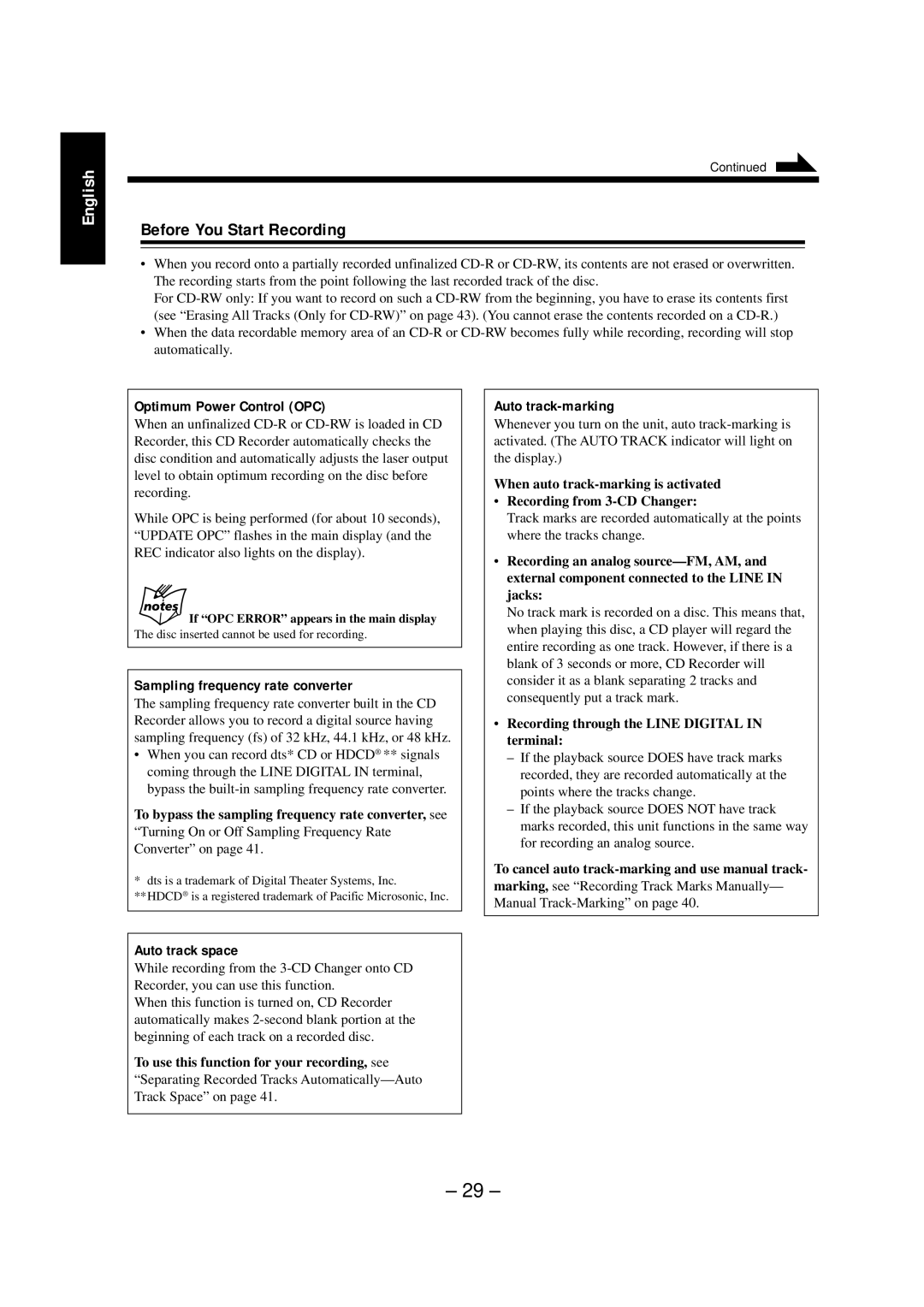
English
Continued
Before You Start Recording
•When you record onto a partially recorded unfinalized
For
•When the data recordable memory area of an
Optimum Power Control (OPC)
When an unfinalized
While OPC is being performed (for about 10 seconds), “UPDATE OPC” flashes in the main display (and the REC indicator also lights on the display).
If “OPC ERROR” appears in the main display
The disc inserted cannot be used for recording.
Sampling frequency rate converter
The sampling frequency rate converter built in the CD Recorder allows you to record a digital source having sampling frequency (fs) of 32 kHz, 44.1 kHz, or 48 kHz.
•When you can record dts* CD or HDCD® ** signals coming through the LINE DIGITAL IN terminal, bypass the
To bypass the sampling frequency rate converter, see
“Turning On or Off Sampling Frequency Rate Converter” on page 41.
*dts is a trademark of Digital Theater Systems, Inc. **HDCD® is a registered trademark of Pacific Microsonic, Inc.
Auto track-marking
Whenever you turn on the unit, auto
When auto
•Recording from
Track marks are recorded automatically at the points where the tracks change.
•Recording an analog
No track mark is recorded on a disc. This means that, when playing this disc, a CD player will regard the entire recording as one track. However, if there is a blank of 3 seconds or more, CD Recorder will consider it as a blank separating 2 tracks and consequently put a track mark.
•Recording through the LINE DIGITAL IN terminal:
–If the playback source DOES have track marks recorded, they are recorded automatically at the points where the tracks change.
–If the playback source DOES NOT have track marks recorded, this unit functions in the same way for recording an analog source.
To cancel auto
marking, see “Recording Track Marks Manually— Manual
Auto track space
While recording from the
When this function is turned on, CD Recorder automatically makes
To use this function for your recording, see
“Separating Recorded Tracks
– 29 –
